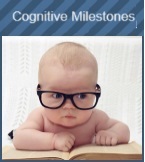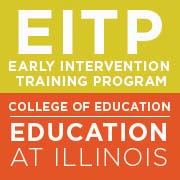Cognitive developmental milestone delay is common in many children who were born prematurely, as well as many with given DSM diagnoses. According to some experts, achievement of cognitive milestones is contributory for proper development of all other developmental milestones across all pediatric domains, which include fine motor, adaptive, gross motor, social-emotional, and speech (both receptive and expressive).
Cognitive development refers to the evolution of the ability to think and understand. In a child, it starts with basic processes such as perceiving objects and events in the environment and understanding and processing language. Gradually, cognitive development in the child’s mind reaches more advanced levels such as the formation of thought processes, which includes intelligence, language skills, reasoning power, decision-making and problem-solving skills, conceptualizing and planning, and memory.
Under the aegis of ‘perception’ – are concepts in child cognition that include attributes of cognition in early childhood and development of mental processes that include a discussion of attention, memory, attribution of causality, object permanence, depth perception, physical laws, shared intentionality, language, metacognition, and symbolic thought.
Cognitive development milestones are a set of benchmarks that represent important steps forward in a child’s life. These milestones reflect how a child’s brain develops and include thinking, learning, exploring, and problem-solving skills. When your child accomplishes a milestone within a timely manner, it’s an adequate indicator that they’re progressing and developing at a good pace, relative to the norm.
Cognitive development is essential to a child’s growth and overall learning. When a child has healthy cognitive development early on, they’re more likely to succeed later in life. Educators, EI Providers, and families play an important role in fostering a child’s cognitive skills through incorporating developmentally appropriate activities, tracking key milestones, and acting early if there are any concerns.
Special educators play an important role in fostering a child’s cognitive skills through incorporating developmentally appropriate activities, tracking key milestones, and acting early if there are any concerns. This primer is a MUST READ for all early intervention providers who service the professional needs of the infant, toddler, and child with developmental delay.
Sign up now!

ASHA LEARNERS PLEASE NOTE: There are 2 purchase options above, EI Continuing Education and CEU. If you wish to earn ASHA CEUs for this course and you select the CEU option, your information including name, address, e mail and ASHA ID, will be sent to ASHA CE. If you do not want your information sent to ASHA, please select the option for continuing education. Learner must achieve a passing score of 75% on the post course examination in order to meet satisfactory completion requirements.
APPROVED BY THE ILLINOIS EARLY INTERVENTION TRAINING PROGRAM FOR EARLY INTERVENTION CREDENTIAL CREDIT for 4.0 Hours

Disclosure: Disclosure: David C Saidoff PT - course developer/presenter - has the following relevant financial relationships to disclose: he receives monetary compensation for the preparation of this course, in addition to a percentage of company sales, and has the following relevant non-financial relationships to disclose: EITTOC Board of Directors: volunteer member. Melissa Whelan, OTR - course developer/presenter - has the following relevant financial relationships to disclose: she receives monetary compensation for the preparation of this course, in addition to a percentage of company sales, and has the following relevant non-financial relationships to disclose: EITTOC Board of Directors: volunteer member. Nancy L. Beckerman, LCSW, DSW - instructor has the following relevant financial relationships to disclose: she receives monetary compensation for the preparation of this course, in addition to a percentage of company sales, and has the following relevant non-financial relationships to disclose:EITTOC Board of Directors: volunteer member. KristenO’Leary,SLP, has the following relevant financial relationships to disclose: she receives monetary compensation for the preparation of this course, in addition to a percentage of company sales, and has the following relevant non-financial relationships to disclose:EITTOC Board of Directors: volunteer member. Dr. Robert Koppel, M.D.,FAAP, Diplomate of the American Board of Pediatrics has the following relevant financial relationships to disclose: he receives monetary compensation for the preparation of this course, in addition to a percentage of company sales, and has the following relevant non-financial relationships to disclose: EITTOC Board of Directors: volunteer member. Rebecca Stern Lamm, MSW, LCSW has the following relevant financial relationships to disclose: he receives monetary compensation for the preparation of this course, in addition to a percentage of company sales, and has the following relevant non-financial relationships to disclose: EITTOC Board of Directors: volunteer member. Declaration: Approval of this course does not necessarily imply that any of the governing bodies (e.g., West Virginian Board of Physical Therapy, or other such governmental or NGO’s supports the views of the presenter or sponsor. Information provided should be used within the scope of practice. No relevant financial or non-financial relationships exists between EITTOC or the products discussed any course; no such relationship or endorsement exists for any products mentioned in any courses sponsored by EITTOC, or in any of the items (such as specific AED or Epinephrine injection product) or any testing instrument used to evaluate children; the above course is specific to said-topic, and may not be extrapolated to any other course or topic outside the scope of this course. Course instructor(s) have no other financial or non-financial remuneration - whether prior to or following course delivery; the above advertisement is made available to all physical therapy (and other) licensee on a non-discriminatory basis. Ascend has approved this course and may be contacted about any concerns. Information provided should be used within scope of practice. AOTA does not endorse specific course content, products, or clinical procedures. The onus of responsibility for this course – granted contact hours by the AOTA – is for each OT professional to check with their State board of OT to see if this course meets licensure requirement for continuing education. |






